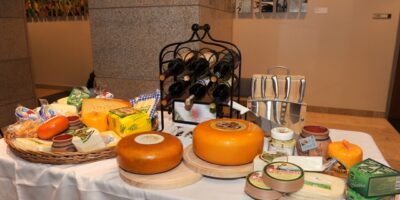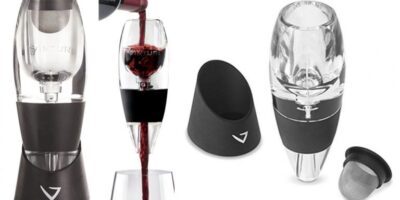
Is Wine Vegan?
The vegan wine question has gotten complicated with all the labeling confusion and hidden ingredients flying around. As someone who worked in wine retail for years and fielded this exact question hundreds of times from confused customers, I learned everything there is to know about what actually goes into wine production. Today, I will share it all with you.
The Winemaking Process
Wine goes through several steps from grape to bottle – harvesting, crushing, fermentation, clarification, aging, and bottling. Most of these stages are straightforward and completely vegan. The problem shows up during clarification, which is where things get weirdly non-vegan in ways that surprised me when I first learned about it.
Understanding Fining Agents
During clarification, winemakers use fining agents to remove particulates and proteins that make wine cloudy. These agents help clarify the wine, making it visually appealing and improving texture. Here’s where it gets gross: popular fining agents include casein (milk protein), albumin (egg whites), gelatin (from animal bones), and isinglass (from fish bladders). Yes, fish bladders.
- Casein – derived from milk
- Albumin – sourced from eggs
- Gelatin – extracted from animals
- Isinglass – obtained from fish
These substances bind to unwanted particles, which are then filtered out of the wine. Technically they’re removed, but traces can remain. That’s what makes wine’s vegan status endearing to us label-readers – it’s simultaneously obvious and completely hidden.
Vegan-Friendly Alternatives
More vineyards today are turning to vegan-friendly fining methods, partly from ethics and partly from market demand. Bentonite, a type of clay, is one popular choice that works just as well as the animal products. Activated charcoal is another alternative that effectively filters impurities.
Some producers skip fining altogether, making unfiltered wines. These wines may appear cloudier or contain sediment, but they’re definitely vegan. I actually prefer the texture of many unfined wines – they feel more complete somehow.
Identifying Vegan Wines
Probably should have led with this section, honestly. Identifying vegan wines is frustrating because most labels don’t detail the fining process. However, there are ways to figure it out:
- Labels and Certifications: Some wines proudly carry a vegan label. Certifications from groups like the Vegan Society occasionally appear on bottles, though it’s still rare.
- Online Resources: Websites like Barnivore and various apps can help identify vegan wines. They maintain crowd-sourced databases with winery information.
- Direct Communication: Reaching out to wineries directly actually works. Most are transparent about their processes when you ask specifically.
- Retail and Restaurant Support: Many wine shops and restaurants now track vegan options. Staff who specialize in wine can usually guide you, especially at independent stores.
Winery Movements Toward Vegan Products
The demand for vegan products is genuinely growing, and wineries are responding. Some adopt vegan-friendly techniques for ethical reasons, while others see the obvious marketing advantage. Offering vegan options broadens their customer base without really costing them anything extra, so it’s an easy win.
I’ve watched this shift happen in real-time over the past decade. Wineries that would have laughed off the question ten years ago now proudly advertise their vegan status.
Why Vegan Wine Matters
For vegans, choosing vegan wine isn’t a negligible detail – it aligns with their core values of avoiding animal products in all forms. For others, it’s about sustainability and ethical farming practices. Vegan wines often overlap with organic and biodynamic approaches, creating a cluster of values-based wine choices.
I’m not vegan myself, but I respect the consistency of actually checking everything, including wine. It would be easy to assume wine is automatically vegan and call it good enough.
The Growth of Vegan Wine Markets
The market for vegan wines continues expanding rapidly. As more consumers adopt plant-based lifestyles, wineries follow the money. The increase in vegan wines on shelves reflects broader changes in consumer preferences and the industry’s willingness to adapt.
Supermarkets and beverage retailers now dedicate actual shelf sections to vegan-friendly options, which seemed unlikely just five years ago. The momentum is real.
Challenges with Vegan Labeling in Wine
Despite growing interest, consistent labeling remains a massive hurdle. The lack of regulation around fining processes means consumers can’t rely on labels to make informed choices. You might be drinking fish bladder residue and never know it unless you do independent research.
That said, advocacy for clearer labeling is increasing. The EU requires some allergen labeling now, which helps with milk and egg-based fining agents. The push aims to help vegans identify suitable wines without needing a PhD in winemaking.
Conclusion
Wine as a simple grape-based beverage hides complexities that affect its vegan status in ways most people never consider. Understanding the winemaking process and fining agents is crucial if you actually care about this stuff. As the industry evolves toward more transparency, both producers and consumers are creating a market where vegan wine is not just available but clearly labeled and easy to find.



